Question And Answer
Publications
Articles, publications, books, tools and multimedia features from the U.S. Institute of Peace provide the latest news, analysis, research findings, practitioner guides and reports, all related to the conflict zones and issues that are at the center of the Institute’s work to prevent and reduce violent conflict.
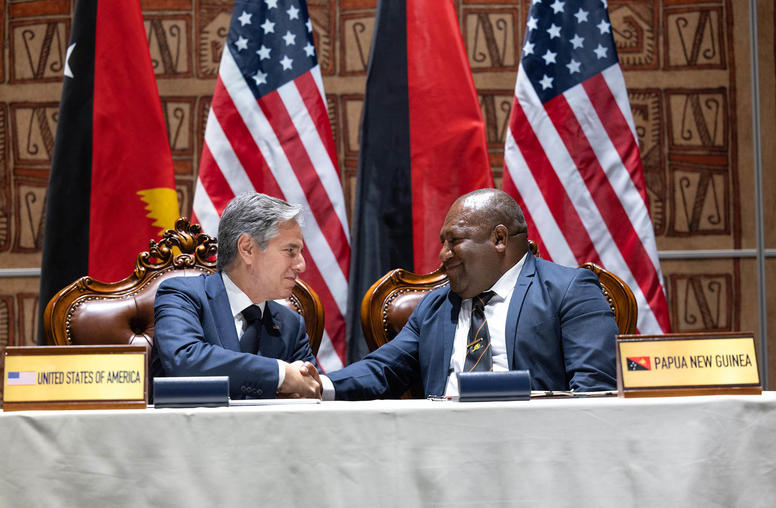
U.S. Strengthens Ties with Key Pacific Island Partners
The United States notched multiple diplomatic wins in the Pacific Islands region last week, making further progress in Washington’s efforts to step up engagement in this oft-neglected part of the world. In a move closely watched by Pacific nations, the United States signed deals to renew its economic assistance to Palau and the Federated States of Micronesia for the next 20 years. Meanwhile, although President Biden had to cancel his planned visit to Papua New Guinea, Secretary of State Antony Blinken inked a defense cooperation deal with the island nation in the president’s stead. While the region has become another arena for U.S.-China competition, Washington has long-standing relationships and interests there that go well beyond its rivalry with Beijing.
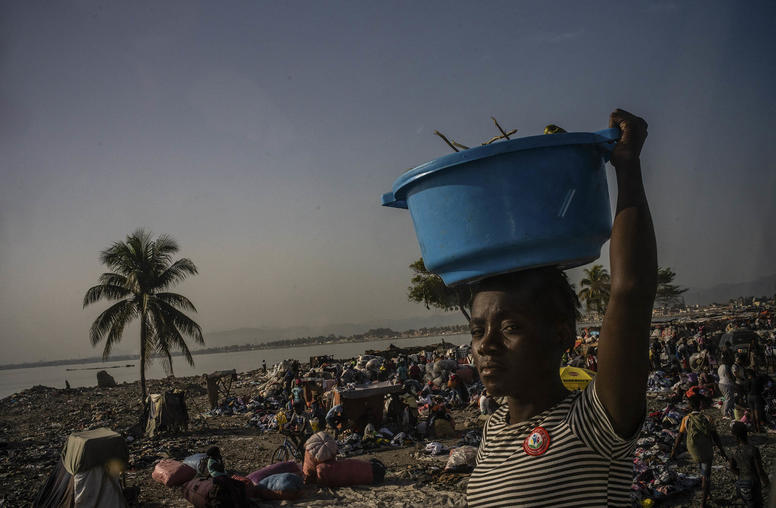
What’s the State of Play on the Global Fragility Act?
The White House’s recent release of 10-year stabilization and conflict prevention plans marks another milestone in U.S. efforts to implement the closely watched Global Fragility Act (GFA). The legislation received bipartisan support in the U.S. Congress before being signed into law by then President Donald Trump in 2019. It requires the U.S. government to develop a strategy for preventing the drivers of violent conflict and extremism, and to test a more coordinated, cost-effective and sustained U.S. approach in hot spots around the world.
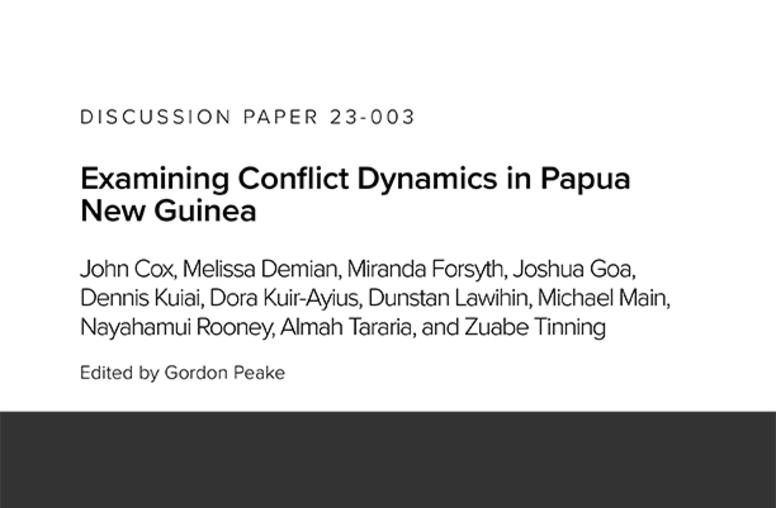
Examining Conflict Dynamics in Papua New Guinea
In 2022, Papua New Guinea was designated as one of five priority countries or regions under the U.S. Strategy to Prevent Conflict and Promote Stability. USIP assembled a study group of senior officials and scholars to provide input on the guiding principles for a strategy to support US efforts to increase stability in the country.
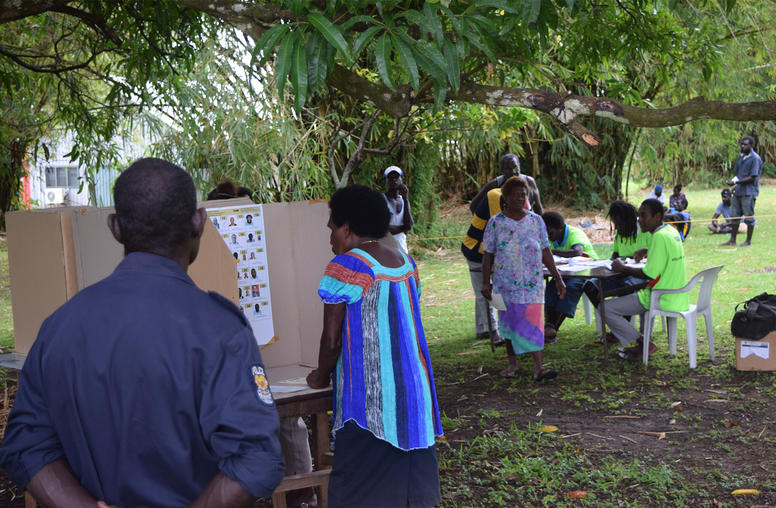
What Does U.S. Reengagement in Papua New Guinea Mean for Bougainville?
As Washington reengages in the Pacific, it must not overlook Bougainville, an autonomous and want-away region of Papua New Guinea. The United States is neutral on Bougainville’s future political status, which is for Papua New Guinea and Bougainville to resolve. Nevertheless, Washington should recall long U.S.-Bougainville historical ties, and consider how the Pacific Partnership Strategy could be leveraged to benefit the people of Bougainville, whatever their future political status might be.
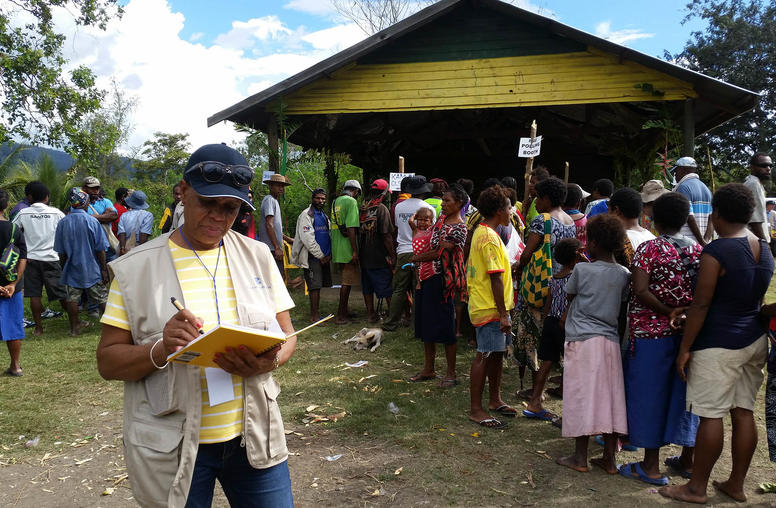
Why Are Papua New Guinea’s Elections Plagued with Problems?
Papua New Guinea’s 2022 elections suffered from a host of problems, following a pattern plaguing the country’s polls for years. At least 50 people died in election-related violence. Post-election fighting in the country’s Highlands region contributed to a rapid rise in internally displaced people. Election observers estimated that in some places as many as half of all voters could not vote owing to problems with the roll. Voting was disrupted and ballot boxes hijacked in places, and violence prevented vote counting from being completed in at least two national electorates. There is now an urgent need for the international community to intensify their work with the government of Papua New Guinea to ensure that future elections improve and that the country’s democracy is preserved.
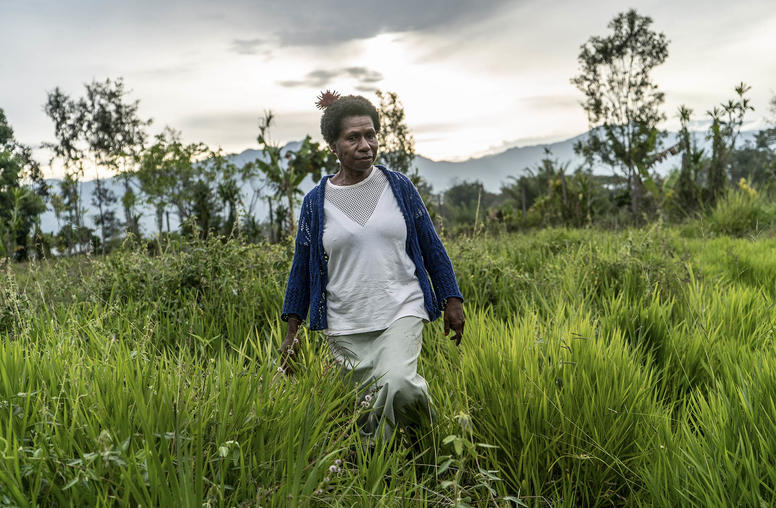
In Papua New Guinea, Homegrown Solutions Should Guide U.S. Aid
“The world stands today at the dawn of a decisive decade — a moment of consequence and peril, of profound pain and extraordinary possibility,” President Biden declared in April. These words came just two months into Russia’s war on Ukraine and during a time of concern for Western countries as China flexed its muscular diplomacy in the Pacific Islands region. Biden’s statement also sets the scene for the U.S. administration’s new approach to peacebuilding, which aims to prevent conflict from erupting in fragile states by disrupting drivers of instability.
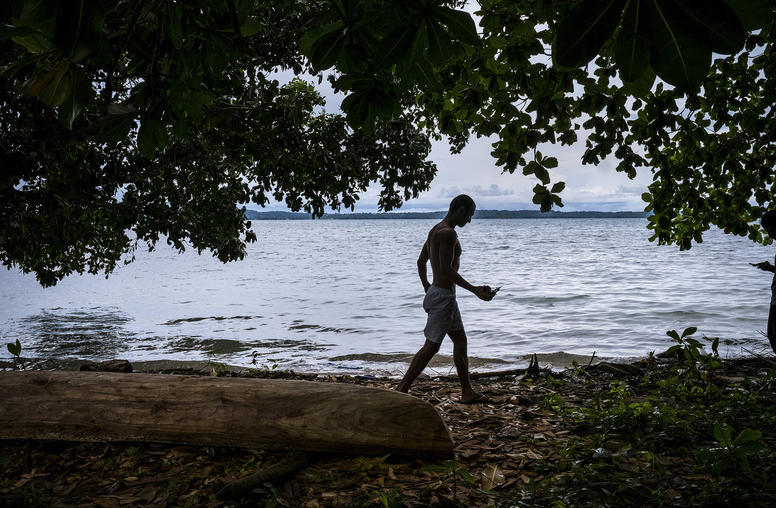
A Framework for U.S. Engagement with Papua New Guinea
Papua New Guinea (PNG) has become a key focal point for the United States as it aggressively renews ties with Pacific Island countries. U.S. engagement with PNG will require a comprehensive approach that incorporates cross-nation security cooperation and development assistance. Traditional approaches are insufficient to meet these goals. The United States should envision a framework beyond sole reliance on its military and civilian agencies. This new framework would serve to address PNG’s unique challenges, counter China’s regional activism and undergird U.S. leadership in the Pacific.
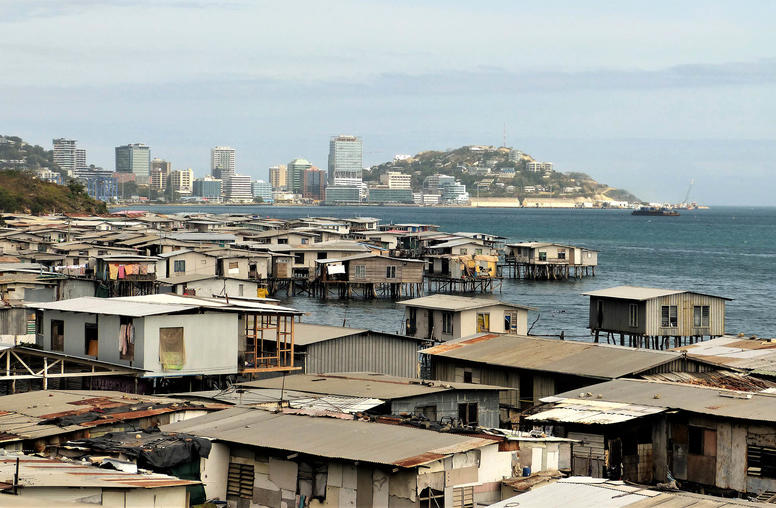
The Next Five Years Are Crucial for Bougainville’s Independence Bid
Now that Papua New Guinea Prime Minister James Marape has been reelected, the stage is set for him to settle what he has called the biggest issue facing the country — the future political status of Bougainville, an autonomous region seeking independence by 2027. Papua New Guinea is unlikely to let it secede, but Bougainville is unlikely to settle for anything less than full independence, and positive relations between the two governments will be of paramount importance in the coming years. Meanwhile, intensifying U.S.-China competition in the South Pacific creates wider implications for Bougainville’s potential independence.
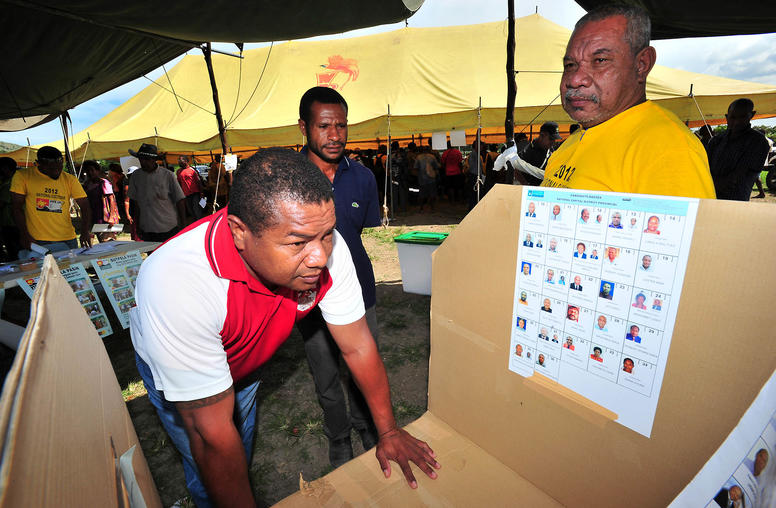
Papua New Guinea: Election Violence Shows Lack of Trust in the State
One of the most incisive works of the prodigious but too little heralded Papua New Guinean writer Steven Winduo is a short story collection titled the “Unpainted Mask.” The book explores how the denizens of the island nation negotiate the everyday travails of modern life, using as its central motif how people wear different masks to view themselves and others. According to Winduo, it is vitally important to discern the public mask, as well as to appreciate what is underneath. Seeing one without the other is a recipe for distorted vision. Winduo’s words don’t just apply to people, but also to the state of Papua New Guinea (PNG) and its institutions.
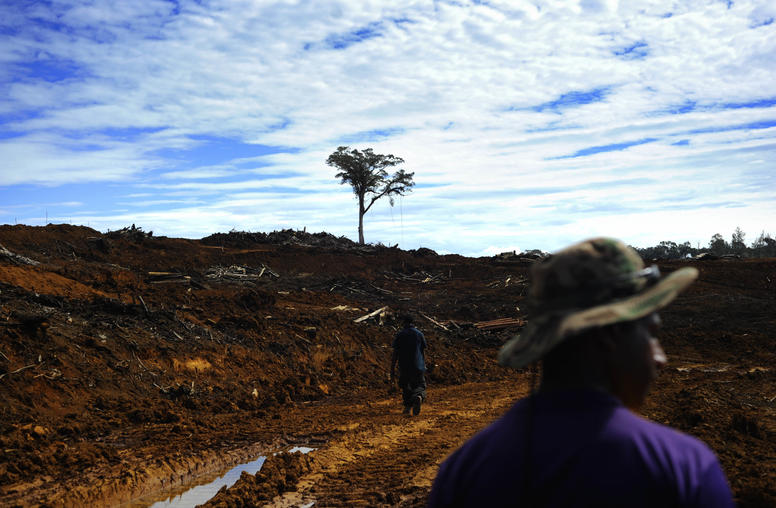
New U.S. Plan is an Opportunity to Deepen Engagement with Papua New Guinea
In terms of geographical size and population, Papua New Guinea (PNG) is by far the biggest country among the Pacific Islands, a region increasingly central to U.S. strategic interests. Along with neighboring Solomon Islands, PNG is at the center of a growing geopolitical contest involving the United States and its allies and China. PNG has also long been wracked by domestic instability, which has depressed equitable economic growth and limited the country’s ability to play its natural role as regional leader and a bridge between the Pacific Islands region and East Asia. Despite PNG’s potential importance, the United States has a light political footprint in the country, particularly when compared to Australia, making PNG’s designation as a focus country under the Global Fragility Action (GFA) an opportunity to dramatically scale up engagement.